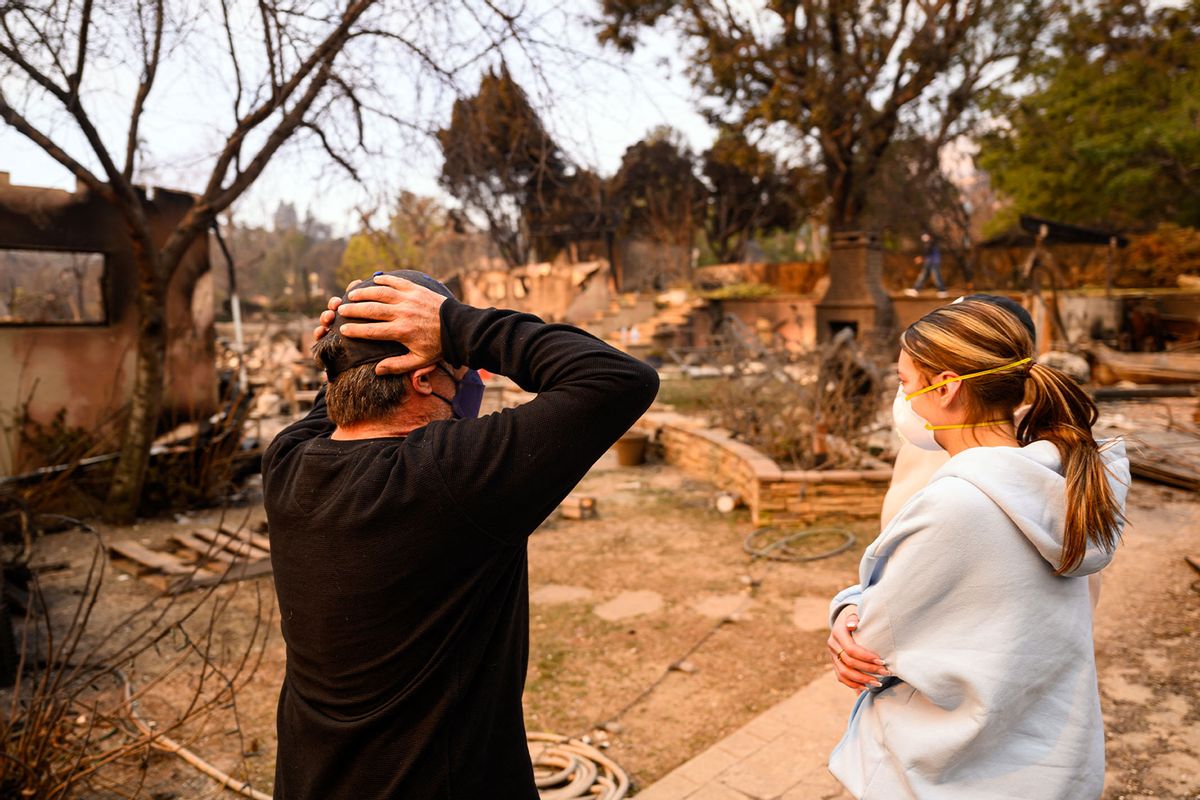Los Angeles County was already one of the nation's most expensive areas to live before wildfires began raging on Jan. 7.
Now the fires, three of which had not been contained as of Monday, are likely to further strain a tight housing market, at least in the short term, according to analysts and advocates.
More than 12,000 homes have burned in the past week, a small percentage of the county's 3.7 million homes. But an increase in the lack of affordable housing and insurance is expected, along with more competition for available units and wrangling between developers and local governments that regulate building.
“Not only are thousands of people suddenly without a home, many of them are high-income, which means they will be able to outbid most L.A. residents for rental housing,” Sonja Trauss, executive director of housing advocacy group YIMBY Law, told Salon. “In the short term, we will see increases in crowding, rents, homelessness and displacement.”
Impact on inequality, costs
In areas like Altadena, north of Pasadena, there are concerns about the impact of the fires on racial inequality. Black homeowners make up 81.5% of the market there, nearly double the national rate, according to The Associated Press.
“We’re seeing a number of families who are probably going to have to move out of the area because rebuilding in Altadena will be too expensive for them,” Rev. George Van Alstine of Altadena Baptist Church told The Associated Press. Black parishioners make up half of his congregation, he said.
We need your help to stay independent
Communities that have seen homeownership rates rise may struggle amid more competition for available housing and rising mortgage rates. Overall, the financial impact of the massive wildfires, already estimated to be among the costliest disasters in U.S. history, could have far-reaching implications on the market.
“We will see a significant fallout and impact on not only developers, but individuals, insurance companies, banks, local businesses and even the state of California,” said Renzo Renzi, principal at 364 Capital LLC, a Florida-based firm specializing in bankruptcy restructuring. “The local businesses that rely upon the local community will be especially impacted because there are no people there to support them. I expect that a number of these businesses, especially in the most devastated areas, will resort to bankruptcy and/or liquidation.”
People who can't afford to rebuild or who lacked adequate fire insurance "may need to sell their assets to fund their basic human needs like food, shelter, health [needs],” Renzi said. “A lot of these people may not be able to fund their outstanding debts, and I believe that individual bankruptcies will escalate in the affected areas.”
The city’s response
Los Angeles Mayor Karen Bass, who was on a trip to Ghana when the wildfires broke out, is now under intense pressure to deliver on her previous pledges to address the city's affordable housing issues.
On Monday, her office issued an executive order seeking to quickly clear debris and jumpstart the rebuilding process by expediting permit reviews and temporary certificates of occupancy for 1,400 units.
But some say the scale of the disaster requires another look at the city's lengthy permitting process, which they say should have been a priority before the fires.
And while many hope the crisis will be short-lived, there is less optimism for a quick recovery.
“There were more than 12,000 structures that were destroyed,” Renzi said.
“How long will it take to rebuild? These communities will be impacted for years, possibly decades.”



Shares